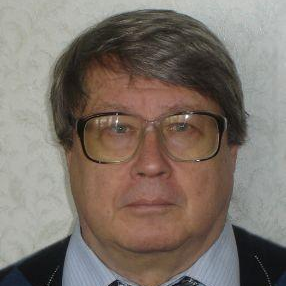Catalytic Functionalization of C‒H Bonds
A special issue of Catalysts (ISSN 2073-4344).
Deadline for manuscript submissions: closed (31 January 2016)
Special Issue Editor
Interests: metal complex catalysis; biomimetic catalysis; photocatalysis; oxidation of hydrocarbons; catalytic activation and functionalization of C–H bonds in hydrocarbons; organometallic chemistry; regioselectivity
Special Issues, Collections and Topics in MDPI journals
Special Issue Information
Dear Colleagues,
Efficient and selective functionalization of C–H bonds in saturated and aromatic hydrocarbons is one of very important goals of organic chemistry. Many reactions of various organic compounds occur via C–H bond functionalization, that is, replacing hydrogen atom by any other group. All these processes lead to the formation of extremely valuable chemical products. However, a practical realization of this task meets serious difficulties, especially for the case of saturated hydrocarbons, due to very high inertness of alkanes (which are the “noble gases of organic chemistry”). Alkanes do not usually react with “normal” reagents that easily oxidize much more reactive olefins, alcohols, amines, etc. Fortunately, during the last decades, new catalytic systems based on metal complexes have been discovered, which allow us to introduce various groups into aromatic and even saturated hydrocarbons, as well as other C–H compounds (see, for example, A. E. Shilov, G. B. Shul’pin, “Activation and Catalytic Reactions of Saturated Hydrocarbons in the Presence of Metal Complexes”, Kluwer Academic Publishers, Dordrecht/Boston/London, 2000, 548 pp.).
The aim of this Special Issue is to familiarize the reader with recent studies, as well as novel trends, in the field of homogeneous, heterogeneous, and enzymatic catalytic transformations of hydrocarbons and other organics (including, inter alia natural terpenes). Theoretical investigations, DFT calculations, which help to understand mechanisms of the processes, are welcome. Full comprehensive and mini-reviews, covering various fields of catalytic transformations and/or highlighting specific problems, describing new unusual catalysts, new unusual solvents, new methods of inducing reactions (by irradiation etc.), and “Perspectives” will be very helpful for the reader. Especially interesting will be new methods applied to light alkanes, including methane.
Dr. Georgiy B. Shul’pin
Guest Editor
Manuscript Submission Information
Manuscripts should be submitted online at www.mdpi.com by registering and logging in to this website. Once you are registered, click here to go to the submission form. Manuscripts can be submitted until the deadline. All submissions that pass pre-check are peer-reviewed. Accepted papers will be published continuously in the journal (as soon as accepted) and will be listed together on the special issue website. Research articles, review articles as well as short communications are invited. For planned papers, a title and short abstract (about 100 words) can be sent to the Editorial Office for announcement on this website.
Submitted manuscripts should not have been published previously, nor be under consideration for publication elsewhere (except conference proceedings papers). All manuscripts are thoroughly refereed through a single-blind peer-review process. A guide for authors and other relevant information for submission of manuscripts is available on the Instructions for Authors page. Catalysts is an international peer-reviewed open access monthly journal published by MDPI.
Please visit the Instructions for Authors page before submitting a manuscript. The Article Processing Charge (APC) for publication in this open access journal is 2700 CHF (Swiss Francs). Submitted papers should be well formatted and use good English. Authors may use MDPI's English editing service prior to publication or during author revisions.
Keywords
- Homogeneous catalysts
- Heterogeneous catalysts
- Enzymes
- Nano catalysts
- Quantum-chemical calculations
- Mechanisms of catalytic reactions
- Aerobic oxidation
- Peroxides
- Saturated hydrocarbons
- Aromatic hydrocarbons
- Oxidation
- Oxygenation





